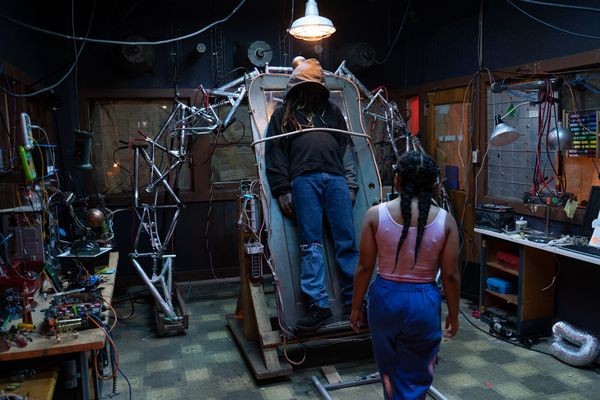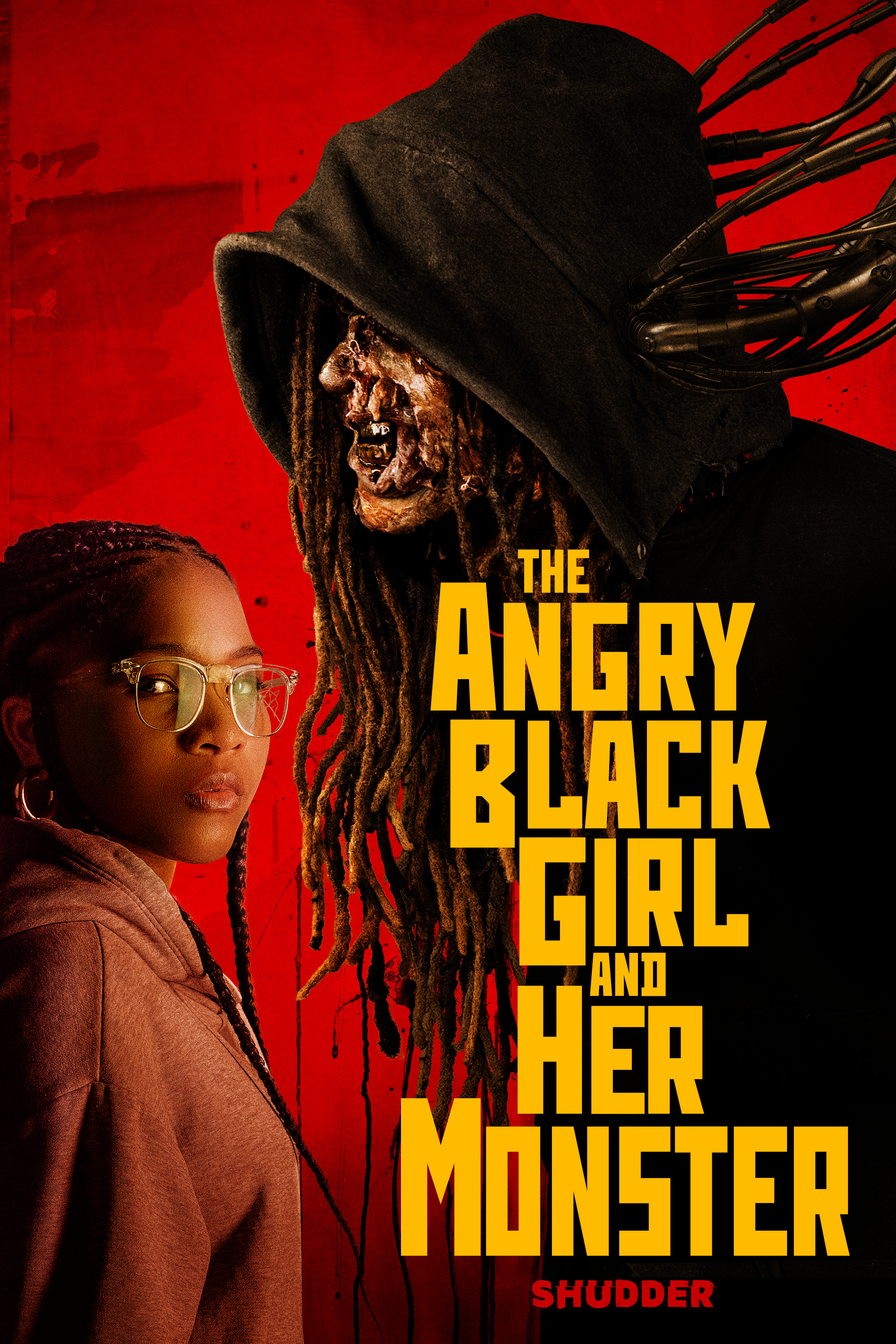Eye For Film >> Movies >> The Angry Black Girl And Her Monster (2023) Film Review
The Angry Black Girl And Her Monster
Reviewed by: Jennie Kermode

Some stories are perennial. Mary Shelley’s Frankenstein has been reinvented again and again in cinema, in myriad forms. Earlier this year it gave us the smart and ethically challenging Birth/Rebirth, and now here it is again, this time played out on a run down housing estate in a scenario which also owes something to HP Lovecraft and Stuart Gordon’s versions of the similarly themed Re-Animator. Here, socially and intellectually isolated teenager Vicaria (Laya DeLeon Hayes) studies and strives to resurrect a brother taken from her by violence, with predictably chaotic results – and not so predictable ones.
Whilst people around the world argue about the need for cultural change and fresh ways of thinking whereby to tackle the existential crises with which we find ourselves confronted, there is a movement taking place in cinema so new that not all of its proponents have as yet realised what they’re part of. Films like Vesper, Herd and Perpetrator are approaching old themes from radically different angles, challenging readers to look beyond the bounds of familiar narratives and make the kind of imaginative leap always necessary before wider societal shifts can take place. It’s no surprise that they’re disappointing some viewers who feel disappointed at the lack of conventional logic and are not yet ready to step out of their well worn cynical comfort zones, but for those who are willing to engage, it’s an exciting phenomenon. Already feted at festivals, The Angry Black Girl And Her Monster joins their number.

On the surface, it’s formulaic for much of its running time – it needs to be because it’s commenting on an established form which it gradually subverts. There’s also that familiar difficult balance to be struck when talking about race-related issues to a mixed audience. To some, the depiction of the microaggressions which Vicaria experiences from a teacher at the ‘white school’ which she attends will seem overly blunt; others will completely miss them, whilst still others will refuse to accept that such things happen in real life (commonplace though they are). Writer/director Bomani J Story works around this by giving us other things to focus on at the same time. Vicaria’s willingness to stand up to her teacher is something which many of us will wish we had possessed at that age, and it’s a sign of things to come. The support which her father shows for her introduces the relationship which, though it doesn’t get much screentime, gives the film its beating heart. The bond between these two bereaved people also speaks to the bonds within a wider community of people who experience loss far too often.
Vicaria’s teacher complains that the girl is obsessed with death. One wonders if she has ever seen a dead body. Vicaria sees them in her own street, and sometimes they belong to young children. The community is further traumatised by the fact that somebody has been stealing bodies from the local morgue, but it won’t take viewers long to work out that that’s Vicaria herself. Whilst others her age focus on their social lives, she hides out in an old lock-up full of anatomical textbooks and Da Vinci diagrams, cutting and sewing fragments of flesh, piecing damaged organs back together and developing chemical formulae. There is no glowing fluid here – this the down-to-earth science fiction found in the likes of Primer and Aporia – but it is, in the end, no less effective.
Sizzling bolts of electricity, uncommonly brutal murders and fear for the safety of a little girl all flicker in and out of the story as one might expect, though Vicaria does not enjoy the freedom of her various predecessors, quickly coming to the attention of the drug dealer who runs the estate and his still more aggressive henchman. She’s no pushover and her willingness to use her intelligence to defend herself keeps her story interesting, but she still lacks any conventional power. She also seems more vulnerable, at times, because her trauma leads her to undervalue her own life, at least until she is reminded of what she might achieve with it. It is that ambition which then sets her apart, attracting envy in a place where hope is rare and people have learned to treat it with caution.
Hayes is excellent in the lead and Story knows how to make the most of it. In a key scene towards the end he slows right down to let the camera rest on her face for a full three minutes, whilst she says everything that needs to be said through the force of her acting. This would be enough to make the film stand out in itself, despite the places in which it struggles due to obvious budget shortfalls, but in the end it’s the boldness of its choices which really makes the difference. Whilst one might easily imagine Hayes in a few years’ time standing in Jeffrey Combs’ shoes and hectoring a famous brain surgeon about his intellectual shortcomings, Story’s film dares to step beyond comedy and look the issues which it raises straight in the face. This is precisely the time and place for boldness: time for Prometheus to be once more unbound.
Reviewed on: 21 Sep 2023
















